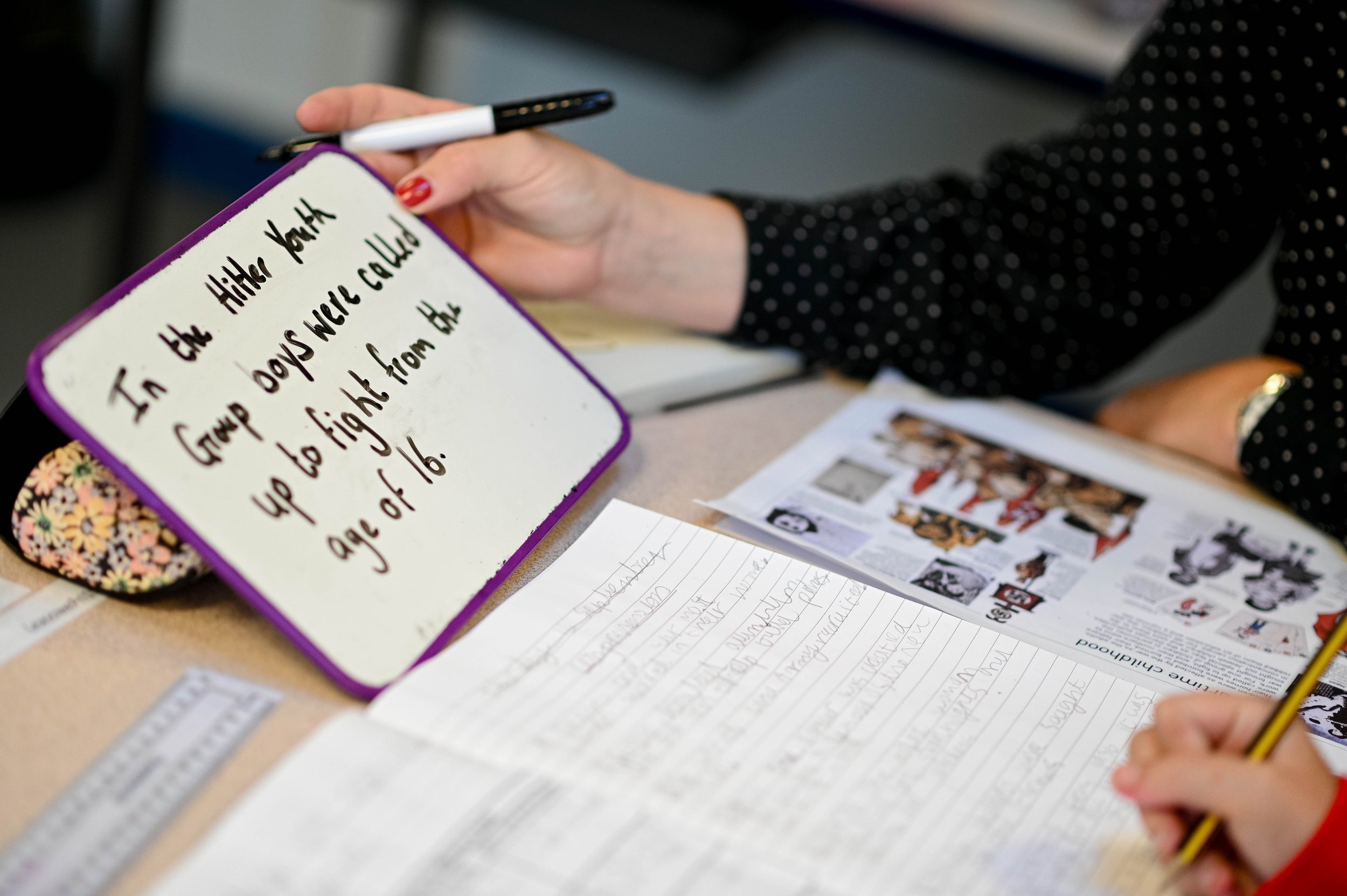
History
Why is History important?
History helps us to understand our own identity within society, the history of Britain and that of the wider world. It teaches us think critically, justify using evidence and to thoroughly consider both sides of an issue before making a decision. History helps us consider information so we can understand the complexities of people, societies and change. It shows us examples of good and responsible citizenship; right and wrong, morals and ethics. Through History, we can apply lessons from the past to our present and future to ensure we question and do not accept things with passivity.
Intent
Our aim at Leasowe Primary is to inspire all pupils to develop an appreciation and understanding of the past and inspire them to be curious and creative thinkers. Through our History units of work we develop a deep understanding of local and national history as well as of the wider world.
Our LPS pupils gain confidence to think critically, ask questions as well as develop skills to explain and analyse historical evidence using a range of primary and secondary sources. The overall goal is to provide LPS children with exposure to a diverse range of societies, fostering empathy and an appreciation of the complex nature of people’s lives. These skills are taught through various time periods and concepts to develop a sense of chronology. Meaningful links with other subjects are made to strengthen connections and understanding for pupils. Our local area has a rich and diverse history. This is incorporated into our history curriculum. By studying our local areas, we can begin to develop an understanding of how lives for people today are influenced by the past and help the children form those connections.
It is our intention that the History units taught develop the children’s knowledge and appreciation of their own identity and the challenges in their time. It will help them understand the process of change over time and significant events and how they have affected life today. By exposing our children to a wide range of historical knowledge and interpretations, we aim for them to question and develop their own ideas and opinions.
Implementation
At LPS we use the Kapow scheme of work which ensure a progressive and robust learning.
Our History curriculum is planned and sequenced in line with the Foundation Stage Statutory Framework and Development Matters in Early Years and the National Curriculum in KS1 and KS2. History knowledge is taught explicitly in history lessons in half termly blocks.
In EYFS, children explore and develop the concept of history by reflecting on key experiences from their own past, helping them understand that they each have their own histories. They engage in activities to compare and contrast characters from stories, including historical figures, deepening their understanding of how individual lives fit into broader historical narratives. ELG are mapped against Key Stage 1 objectives to ensure teaching is sequential and that children have the knowledge and skills to successfully use in KS1.
In Key Stage 1, our units sequence the learning to develop pupils’ understanding of themes such as power, trade, invasion and settlement develop by looking at their place in society and how historical figures and concepts have shaped Britain and the wider world.
Across Key Stage 2, the units re-visit themes of power, trade, invasion and settlement allowing knowledge of these to grow using different contexts, meaning that pupils begin to develop an understanding of these abstract themes which are crucial to their future learning in History. The units develop chronological understanding of changes affecting individuals, Britain and the wider world.
Over the course of the units, children encounter the following concepts in different contexts:
• Change and continuity.
• Cause and consequence.
• Similarities and differences.
• Historical significance.
• Historical interpretations.
• Sources of evidence.
These concepts are encountered in different contexts during the study of local, British and world history units to develop skills using sources and evidence. (Question, Investigate, Interpret, Evaluate and Conclude, Communicate).
To bring history to life and enrich our children's experiences we have themed days as well as trips to places of local historical significance.
Impact
The impact of the History curriculum at Leasowe Primary School is constantly monitored through both formative and summative assessment opportunities. Retrieval sessions at the beginning of each lesson allow assessment of previous learning. Each unit concludes with a unit quiz to inform teacher assessments and identify any gaps in leaning. A ‘knowledge catcher’ is used at the beginning of every unit to identify prior knowledge and is added to at the end of the unit to assess new learning. Opportunities for children to present their findings using their historical skills will also form part of the assessment process in each unit.
Our history curriculum ensures that, at the end of their time at LPS, our children will:
- Understand the history of Britain, how people's lives have shaped this nation, and how Britain has influenced and been influenced by the wider world.
- Develop an understanding of the history of the wider world, including ancient civilisations, empires, non-European societies, and the achievements of mankind.
- Develop a historically-grounded understanding of substantive concepts such as power, invasion, settlement and migration, civilisation, religion, trade, achievements of mankind, and society.
- Form historical arguments (using evidence) based on cause and effect, consequence, continuity and change, similarity and differences.
- Have an appreciation for significant individuals, inventions, and events that impact our world both in history and from the present day.
Meet the relevant Early Learning Goals at the end of EYFS (Reception) and the end-of-key-stage expectations outlined in the National curriculum for History at the end of Key stages 1 and 2.
